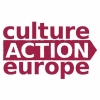Eleccions nord-americanes: implicacions polítiques i culturals per a Europa
A la vista del resultat de les eleccions nord-americanes, Culture Action Europe (CAE) ha fet una declaració en què insta les institucions europees i els estats membres a comprometre’s amb les qüestions que preocupen la ciutadania i a reflexionar sobre el valor de la cultura com a factor de cohesió social: «We urgently need to engage with the deep concerns of citizens».
Segons CAE, el qüestionament del funcionament de les democràcies occidentals és senyal d’un procés polític present també a Europa, en què les solucions als reptes que planteja la crisi econòmica i de valors s’han centrat en el l’impuls al creixement econòmic segons velles fórmules que ja no són vàlides i que són font de conflictes.
Les tensions socials causades per una gestió deficient de la diversitat han de repensar-se com a reptes per a noves polítiques culturals que promoguin la participació i la integració ciutadana. En aquests temps de canvi i d’incertesa, el valor de la cultura és una base sòlida des de la qual construir una resposta coherent que salvaguardi els principis i les llibertats europees.
A continuació podeu llegir el text íntegre de la declaració que figura al web de CAE:
«CAE statement on the results of American elections
In light of the results of the American election, Culture Action Europe reflects on the political implications for Europe and encourages the European Institutions to sincerely engage with the concerns of its citizens.
CAE sees the American results as part of a political trend gaining ground across Western democracies. It signals an epochal change, where large segments of the population question the way our liberal democracies function.
Analysing the American results, we observe echoes of similar processes in Europe. The economic crisis has produced a growing inequality and eroded the hopes for progress for vast sections of the population. So far, policy solutions to these challenges have largely been focused on promoting economic growth. Yet, unqualified growth does not suffice. Growth for whom and how growth is created are questions at the centre of citizens’ frustrations that so far, have received no satisfactory political answer. Old formulas such as trade liberalisation, fiscal consolidation or the promotion of flexibility in labour markets are perceived by citizens as adding to the existential insecurity that fuels these political movements.
The results also show the relevance of cultural factors. In particular, the fear of the stranger and the loss of status of particular socio-economic groups (including gender, ethnicity and local identities). It is imperative that political frameworks widen to respond to cultural and social tensions. As cultural sector, we need to honestly reflect on how we are engaging with dissatisfied and disengaged audiences and how our cultural practices can contribute to foster social cohesion.
Western societies are increasingly divided. Current political solutions based on dismissing the so-called ‘populist movements’ are not viable anymore. Political frameworks born in the 1980s have proven to be outdated and ‘politics as usual’ do not suffice. We urgently need to engage with the deep concerns of citizens and devise a coherent response that safeguards European principles. CAE calls upon European institutions and Members States to broaden the current scope of cultural policies to accommodate greater social and artistic goals that contribute to ease fragmentation and encourage citizen’s participation.»
HTML: CAE statement on the results of American elections
Inicieu sessió o registreu-vos per a enviar comentaris
- blog de Interacció
- 2207 lectures





